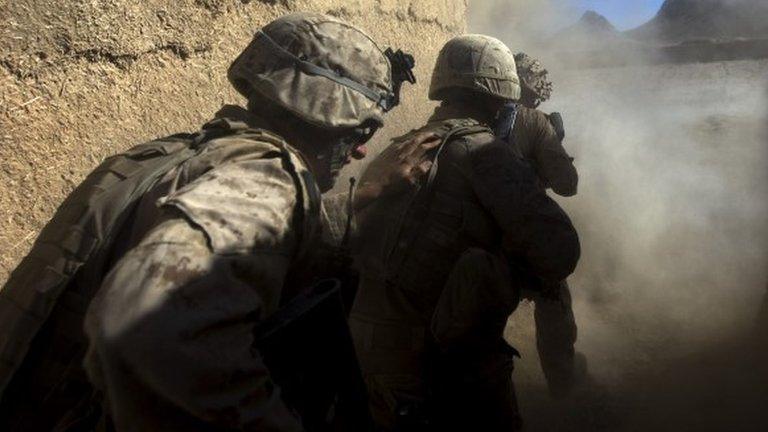Baltic states fearful of Trump's Nato views
- Published
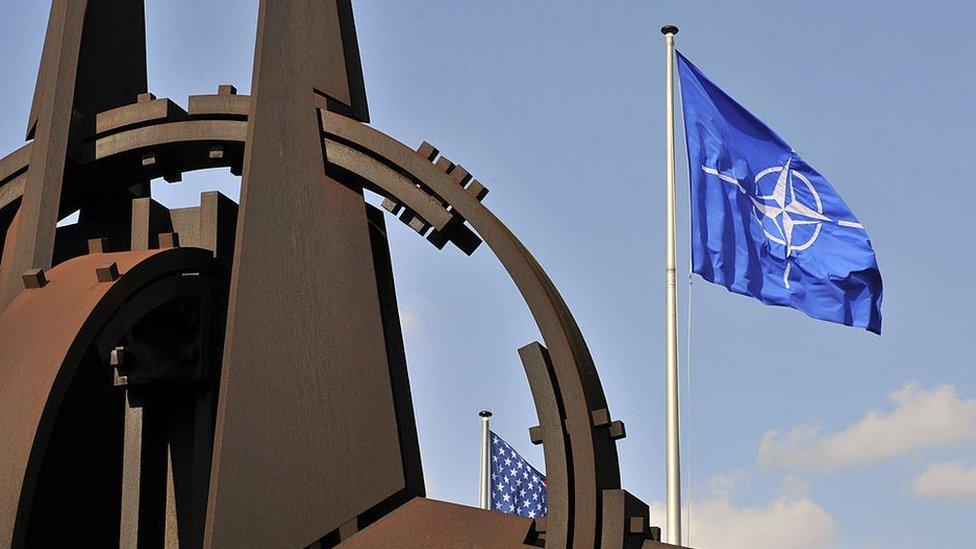
Newt Gingrich may sound like a character in a Dr Seuss book, but he was once among Washington's most powerful politicians, Speaker of the House of Representatives for four years, during Bill Clinton's presidency.
In the immediate aftermath of Donald Trump's election victory, it looked as though he might be in power again.
In the Baltic states, the prospect of Mr Gingrich as the new secretary of state, the instrument of a President Trump's foreign policy, caused real alarm.
This is the politician who, in July, had suggested he would be unwilling to confront Russia in order to defend the independence of one of those countries.
"Estonia is in the suburbs of St Petersburg," he told CBS, "40% of Estonia is Russian… I'm not sure I would risk nuclear war over some place that is the suburb of St Petersburg."
To be fair, in the course of that answer Mr Gingrich suggested that any Russian intervention was unlikely to be military.
Rather, as in Crimea, Moscow would appear to be responding to calls for help from Russian-speaking Estonians themselves.
That is what some in the Baltic fear, too.
They recall the events of 27 February 2014, when masked soldiers - in unmarked uniforms, but thought to be Russian - occupied the building belonging to the Supreme Council of Crimea.
Most now assume they were Russian special forces.
Soon afterwards, the council announced a referendum on Crimea's status within Ukraine.
A month later, it had become part of Russia.
The Baltic countries, Latvia, Lithuania and Estonia, achieved their independence as a result of the dissolution of the Soviet Union.
As members of Nato, they rely on Article 5, the mutual-defence clause of the organisation's treaty, which says if any member is attacked, all others will come to its defence.
The Baltic countries, largely flat, would be difficult to defend.
Even under Nato bombardment, it has been suggested, Russian troops could cross the border and be in Tallin, the Estonian capital, for example, in 36 hours.
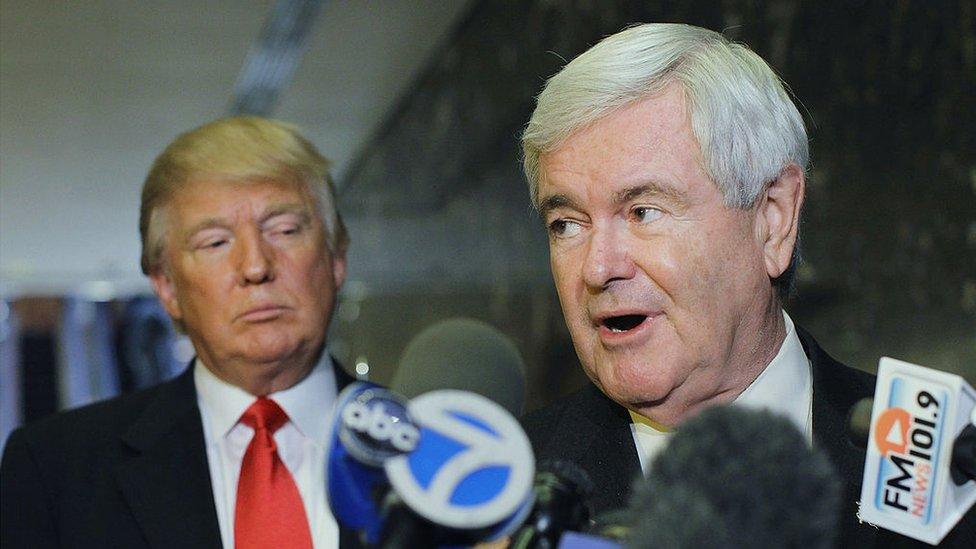
Newt Gingrich (right) has been mentioned as a possible secretary of state under Donald Trump
How, though, do you defend a country if no uninvited troops have crossed its border and no aerial bombardment has taken place?
Indeed, in a situation like Crimea's, would Article 5 even apply?
In 1961, US President John F Kennedy described America's commitment to support European countries vulnerable to Soviet domination as "our central and most important defensive alliance".
Donald Trump may think differently.
As long ago as 2000, in his book The America We Deserve, he suggested pulling back from Europe, writing: "Their conflicts are not worth American lives."
During the course of this year's presidential election campaign, he seemed, at best, lukewarm about Nato.
Since his victory, he has been more emollient; and President Barack Obama, undertaking a farewell tour of Europe in recent days, suggested the burden of office would temper that view.
That assessment is echoed by Gen Lord Richards, formerly chief of the defence staff, the professional head of the British military.
On BBC Radio 4's The World This Weekend programme, he described Mr Trump "as a pragmatic man, who wants to see a stable relationship with Russia and with Mr Putin".
"That is in the interests of all Nato members," Gen Lord Richards said.
"He wants to see Nato grow stronger."
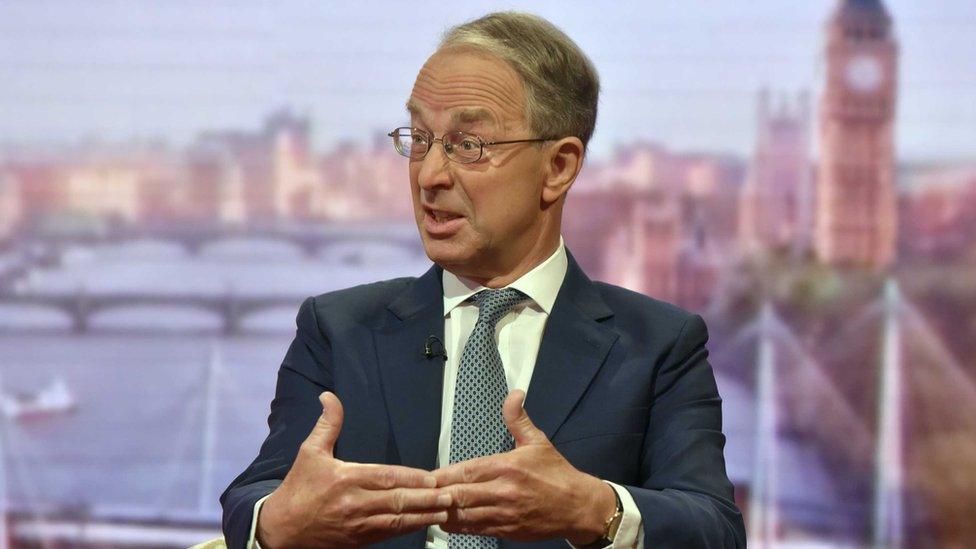
Gen Lord Richards, a former chief of the defence staff, says Donald Trump "wants to see Nato grow stronger"
That last comment sounds optimistic.
Gen Lord Richards, though, implied a reason why President Trump may change his view.
"The reality of becoming president, of inheriting this great mantle of the defender of the western world and of leading Nato, will curb and impinge and direct much of what he is going to do," he said
In other words, a politician with a well developed ego will enjoy the adulation.
In Estonia, Latvia and Lithuania, they are preparing just in case.
Last year, Lithuania introduced conscription.
Estonia has just formed a new coalition government, led by the Center Party, which enjoys the support of most of the country's Russian-speaking minority.
Yana Toom MEP, who was involved in the coalition negotiations, says she wants better relations with Russia.
Although she supports the idea of an EU-led European army, she is sceptical about anyone coming to Estonia's aid.
"We have not to be so dependent on Nato," she told The World This Weekend.
"We do not feel like somebody from outside is going to guarantee our independence."
Senators from Mr Trump's party have invited parliamentarians from Estonia, Latvia and Lithuania to Washington next month.
Ojars Kalnins, who chairs Latvia's Parliamentary Foreign Affairs Committee and spent seven years in the United States as Latvian ambassador, hopes these traditional allies will be able to offer reassurance.
"To have one of our countries dismissed simply as a suburb is questioning our very sovereign identity and nationhood," he says of Mr Gingrich's remarks.
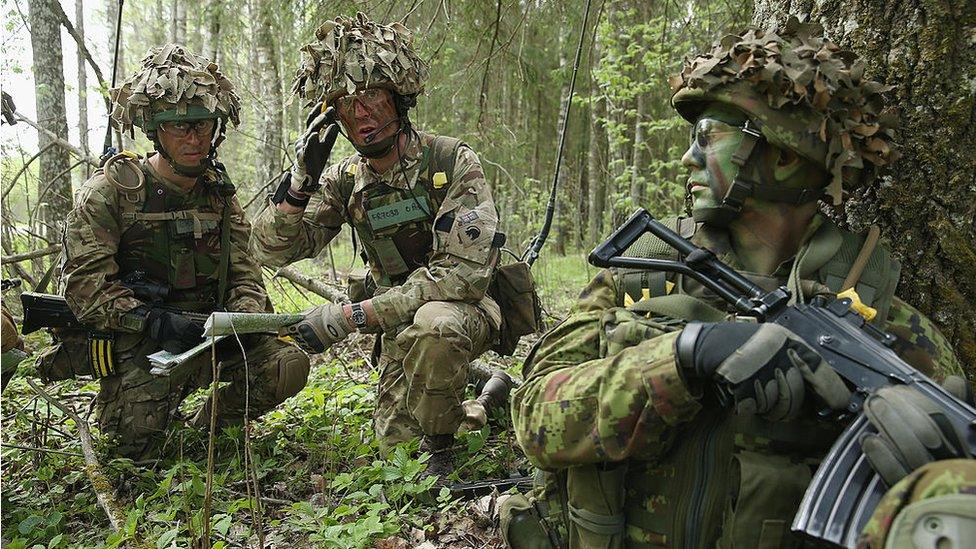
Nato held exercises in Estonia in May 2016
"Donald Trump is an unknown commodity," Mr Kalnins tells me.
"There is a great deal of uncertainty of just what he will do.
"Now he is starting to work with the Republican establishment, they have always been strong supporters of Nato and the Baltic states."
Mr Kalnins has faith in the ability of the senators to temper Mr Trump's actions.
"It's not one president who determines everything in Washington," he says.
We will have to wait to find out what Mr Trump's policy is and indeed whether the promise o f Mr Gingrich to be involved in "strategic planning" for the new administration will give him any influence on foreign policy.
In Moscow, President Vladimir Putin has expressed the desire to restore Russia's "sphere of influence" and may hope his new buddy in the White House will leave him to it.
One hundred years ago, a treaty obligation to the independence of another country, which dated back 70 years, led Britain to declare war on Germany.
The Germans had calculated that the British would never fight over a "scrap of paper".
They were wrong.
Can Mr Putin really be sure that the new US administration sees Nato's treaty, and especially Article 5, as a mere scrap of paper?
- Published18 November 2016
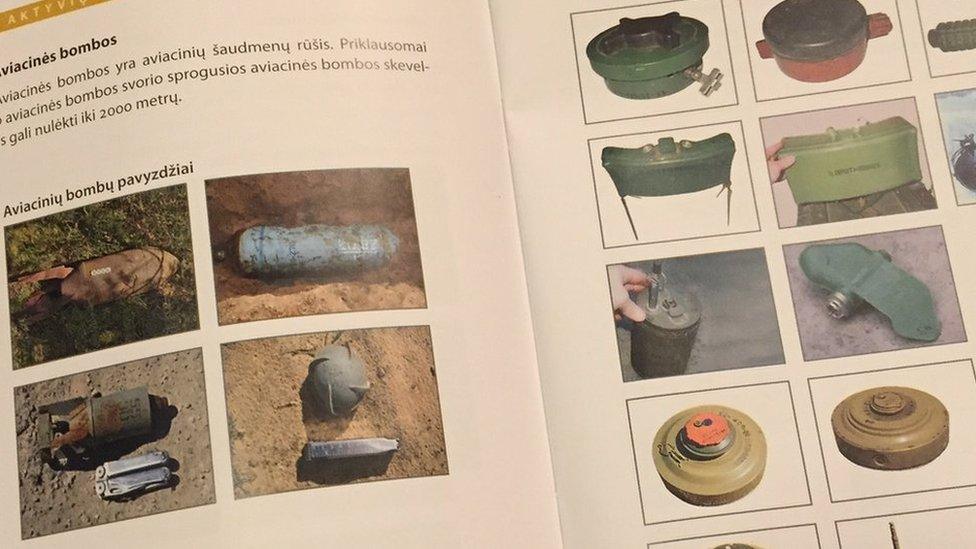
- Published13 November 2016
